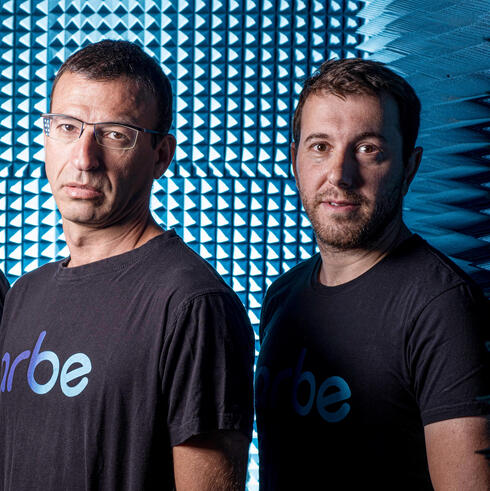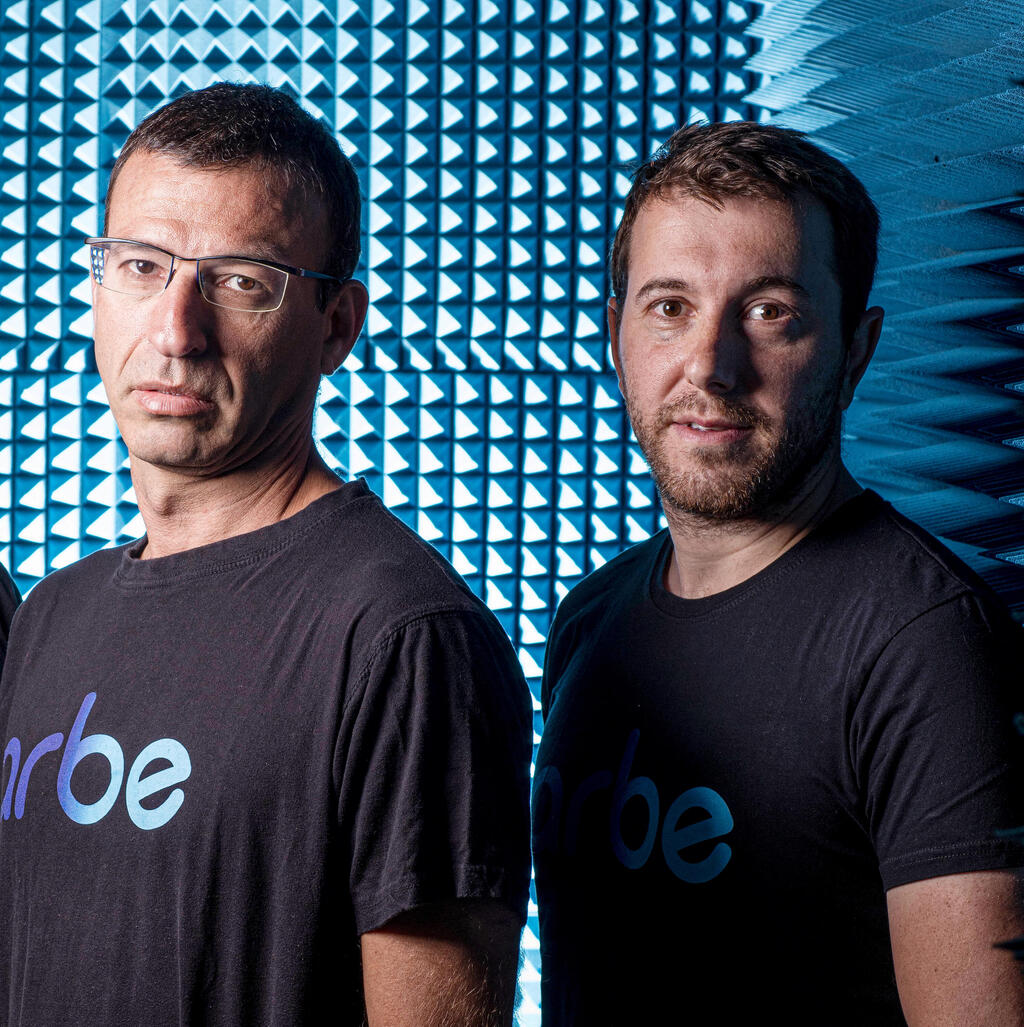
After falling 86% from its peak, Arbe is coming to Tel Aviv in search of fresh funding
The chip developer for the autonomous vehicle industry was listed on Nasdaq three years ago at a valuation of half a billion dollars. Since then, it has burned through $100 million and emptied its coffers. The solution? Raising debt in Tel Aviv.
Arbe's arrival on the Tel Aviv Stock Exchange is another familiar chapter in the story of Israeli high-tech companies: they prefer to share the upside with American investors but share the risk with Israeli investors. Less than three years after going public on the Nasdaq and burning through more than $100 million with no revenue in sight, Arbe is making an emergency landing in Israel.
In October 2021, Arbe was listed during the SPAC boom on Wall Street, with a valuation of about half a billion dollars, raising $118 million. Like most SPAC issues completed in the second half of 2021, much of the SPAC money was withdrawn, and the company mainly received PIPE funds—a private fundraising conducted simultaneously. Since then, Arbe has burned through most of that amount and had to urgently raise $23 million a year ago.
A unique condition of this fundraising is that all proceeds will not immediately pass into Arbe's hands but will be held in trust until certain business conditions are met by the company. The money was mostly raised from funds specializing in "special situations" or distressed situations. However, even this money has largely been spent, and Arbe is still far from generating revenue. Meanwhile, the stock continues to fall, and last Friday, the company traded at a value of $156 million, even after some recovery. Apparently, American investors are relieved because Arbe will have more money to burn, this time from their Israeli colleagues, as the solution to Arbe's plight is, as usual, at home.
The company's stock began trading last week in Tel Aviv as part of a dual listing, completing the real goal of the move—raising convertible bonds from Israeli investors. Local investors, including several institutional entities such as More, Sigma, and Ayalon, have committed another 120 million shekels despite Arbe's unimpressive achievements to date. The bonds carry an annual interest rate of 6.5% and can be converted into shares at a price of $2.6 per share. Last Friday, Arbe closed trading in New York at $2 per share. The unique condition in the fundraising—holding proceeds in trust until certain business conditions are met by Arbe—is a classic catch-22: Arbe needs money to secure contracts, but without revenue, American investors are unwilling to inject more cash.
Arbe is expected to post a paltry $1.5 million in revenue this year while continuing to burn tens of millions of dollars in development. It employs 137 people, 131 of whom are in Israel. This makes it difficult for Arbe to compete in major car manufacturers' tenders, as they are wary of working with financially unstable suppliers. This issue also contributed to the panic surrounding SPAC issuances for Israeli automotive component suppliers, including Arbe, Innoviz, Autonomo, and REE. The IPOs aimed to turn revenue-free startups into public companies to ensure confidence in their continued existence.
In recent months, Arbe reached the final stages of competing for a large Mercedes Benz radar tender (as a sub-supplier sold to the TIER 1 company - S.S.H.) and had to present a sufficient cash cushion. Therefore, the bond issue funds are locked with the trustee until Arbe secures the coveted contract. The conditions for the release of additional funds include an increase in the share price and trading volumes. In New York, Arbe suffers from particularly thin trading, with a turnover of only tens of thousands of shares on good days.
The beginning, as usual, was much more optimistic. Arbe was founded in 2015 by Kobi Marenko, Dr. Noam Arkind, and Oz Fixman, riding the hype wave of Mobileye. Today, the two companies compete head-to-head for main tenders in the radar industry because they both have chips capable of maintaining a radar with several high channels of reception and transmission, as demanded by Mercedes and other German companies. Interior radars in cars are necessary today to provide advanced levels of autonomous driving and can also be a cheaper alternative to lidars or integrate with them to make vehicles autonomous.
Maranko, formerly a journalist who later founded two companies, has been the CEO of Arbe since its inception. Arkind is the Chief Technology Officer (CTO), while Fixman has already left. The chairman of the company is Yair Shamir, son of former Prime Minister Yitzhak Shamir, who was also a member of the Knesset and a minister on behalf of "Israel Beitenu," and held various high-tech positions. In recent years, Shamir has been active mainly in venture capital and serves as a director in many companies in the field.
According to Arbe's presentation on the eve of the SPAC merger, the promising startup should have been in a completely different place today. 2023 should have ended with revenues of $76 million and positive cash flow of $12 million. Instead, as in previous years, Arbe had no revenue, and its operating expenses reached $47 million. Next year, it was expected to reach $312 million in revenue, which will not happen even if it secures the coveted contract from Mercedes-Benz. Contracts of this type require long development and adjustment work that takes years. Even after that, component suppliers such as Magna or Valeo, which supply companies like Arbe or Mobileye, can simultaneously offer solutions from other companies.
Arbe is not unusual in the landscape of SPAC mergers in the automotive field. Revenue-free startups like Autonomo, which went from a promising unicorn valued at $1.3 billion to a company worth $70 million sold to an American car towing service app within two years, exemplify the risks. REE, which started its SPAC journey with an incredible $3 billion valuation, remains revenue-free contrary to optimistic projections and trades at a value of only $47 million. The slightly better-off Innoviz was the first Israeli SPAC, issued at a $1.3 billion valuation, and now trades at $174 million, similar to Arbe. Innoviz has won several significant contracts, but these have yet to translate into revenues. New investors in Arbe should take note.















